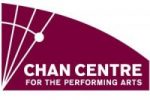Alexander Weimann, Music Director, Harpsichord; Chloe Meyers, Concertmaster & Solo Violin 1; Christi Meyers, Solo Violin 2; Paul Luchkow, Violin; Elyssa Lefurgey-Smith, Violin; Mieka Michaux, Viola; Diederik van Dijk, Cello; Natalie Mackie, Violone; Soile Stratkauskas, Solo Flute
Two of Bach’s most beloved concertos exuberantly celebrate ensemble playing, a joy keenly felt by the musicians of Pacific Baroque Orchestra during this year of isolation. Each concerto features not a single soloist but rather a trio – flute, violin and harpsichord in Brandenburg Concerto No. 5 and two violins accompanied by bass instruments in the Double Violin Concerto. The rest of the ensemble supports the soloists and comments on their playing often in a song-like alternation of catchy tutti refrain and fanciful solo verse.
This concert is generously supported by an anonymous donor and a donation in memory of Vic Baker.
HOW TO WATCH:
ONLINE: Watch the concert online by clicking here.
This concert is available to watch for free thanks to the generosity of donors. To support our programming by making a tax-deductible donation, click here.
Concert will remain online one year from premiere date.
Programme
Johann Sebastian Bach
Brandenburg Concerto No. 5
BWV 1050: Allegro, Affetuoso, Allegro
Double Violin Concerto, BWV 1043
Vivace, Largo ma non tanto, Allegro
Choral Prelude, BWV 639
“Ich ruf’ zu Dir, Herr Jesu Christ”
Programme Notes
The sources of Johann Sebastian Bach’s concerti at times come down to us with some questions. Indeed, many of his instrumental works only survive as arrangements for harpsichord of previous compositions, sometimes leading us to guess even for which instruments he conceived the pieces in the first place. Fortunately, the two concerti on this program survive in their original forms, one in Bach’s own handwriting, and the other in a reliable copyist’s, edited by Bach’s son.
The first of Bach’s so-called “Brandenburg” concerti was definitely based on a pre-existing composition, and the rest of them likely were as well. The pieces were offered in an autograph manuscript to the Margrave of Brandenburg, Christian Ludwig, in 1721, as a gift. It is highly unlikely that they were ever performed at that court, given the immense virtuosity of the parts and the rather unusual scoring of the pieces. Bach’s access to excellent musicians at his current employment in Cöthen likely explains both of these factors. The fifth of this set of concerti, presented on this programme, really ought to be described as a harpsichord concerto with flute and violin accompaniment. Bach himself likely played the obbligato harpsichord part, possibly to inaugurate a new instrument built for his employer in Cöthen in 1719. The beastly difficult cadenza in the first movement of the work suggests this fact. The virtuosity of its writing and its harmonic daring are perhaps unparalleled in any of the harpsichord literature of the period.
Bach described the Brandenburg concerti as “concerts à plusieurs instruments”, which is a genre that should really be seen as distinct from both the solo concerto and the concerto grosso of the Baroque. These are pieces where idiomatic writing and heterogeneous sounds of the various instruments are emphasized. They are arguably unparalleled in both aspects of any of his contemporaries’ compositions. The fifth concerto celebrates the timbres of its soloists: the airy flute, the singing violin, and the sparkling harpsichord. The first movement follows the typical ritornello structure of a solo concerto established by Vivaldi. Ensemble-wide exhibitions of the main theme contrast with episodes taken over by the soloists. The harpsichord dominates. The second movement has the texture of a trio sonata: the orchestra remains silent while the soloists take over completely. The harpsichord alternates between providing its usual continuo support—filling in the harmony—with becoming an evenly matched melodic voice within the group. The final movement is in the rhythm of an Italian giga. It is also a fugue, where each voice enters in imitation of what precedes it.
The concerto for two violins, often affectionately referred to as “the Bach double”, comes down to us in a posthumous copy made in the 1760s, though it likely hails from Bach’s time in Cöthen, c. 1718-1720, where the vast majority of his instrumental music was written. The texture at the beginning has some conservative features, given its very imitative nature. Like the Brandenburg concerto on this programme, the second movement has a very trio-sonata-like texture, though in this case, the orchestra provides reinforcement of the harmony as it progresses. The third movement marks a difference between Bach and Vivaldi regarding concerto structure: Bach preferred wholesale repetitions of his musical ideas, creating intact musical units. The opening ritornello is repeated verbatim at the end of the third movement; his model Vivaldi, on the other hand, would often split segments of music up and recombine them in various puzzle-like pieces.
To finish this programme, we present one of Bach’s many Chorale preludes. These are a kind of frozen improvisation on an existing hymn tune. “Ich’ ruf zu dir, Herr Jesu Christ” (“I call to you, Lord Jesus Christ”), is a phrase many Christians—and even some non-Christians—might be uttering in the current crisis. Set in the flattest key that most organs of Bach’s time could play in to sound reasonably in tune, it truly embodies the spirit of struggle with the hope of a better outlook for the future.
Notes by Justin Henderlight
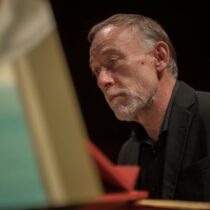
Alexander Weimann, Music Director, Harpsichord
Alexander Weimann is one of the most sought-after ensemble directors, soloists, and chamber music partners of his generation. After travelling the world with ensembles such as Tragicomedia, Cantus Cölln, the Freiburger Barockorchester, Gesualdo Consort and Tafelmusik, he now focuses on his activities as Music Director of the Pacific Baroque Orchestra in Vancouver, Music Director of the Seattle Baroque Orchestra, and regular guest conductor of ensembles including the Victoria Symphony, Symphony Nova Scotia, Arion Baroque Orchestra in Montreal and the Portland Baroque Orchestra.
Alex was born in Munich, where he studied the organ, church music, musicology (with a summa con laude thesis on Bach’s secco recitatives), theatre, mediæval Latin, and jazz piano, supported by a variety of federal scholarships. From 1990 to 1995, he taught music theory, improvisation, and Jazz at the Munich Musikhochschule. Since 1998, he has been giving master classes in harpsichord and historical performance practice at institutions such as Lunds University in Malmö, the Bremen Musikhochschule, the University of California (Berkeley), Dartmouth College (New Hampshire), McGill University, Université de Montréal, and Mount Allison (New Brunswick). He now teaches at the University of British Columbia and directs the Baroque Orchestra Mentorship Programme there. He has received several JUNO and GRAMMY Award nominations – most recently, for the album Nuit Blanches with the Pacific Baroque Orchestra and Karina Gauvin.
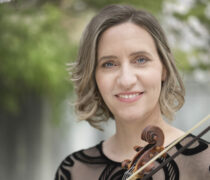
Chloe Meyers, Concertmaster & Solo Violin 1
Violinist Chloe Meyers is a regular guest leader and orchestra member of baroque ensembles all over North America. She has worked with ensembles including Les Violons du Roy, Tafelmusik, the Montreal Symphony Orchestra, Ensemble Les Boréades, the Theatre of Early Music, Les Idées Heureuses and Les Voix Baroques. She recently joined the Pacific Baroque Orchestra as concertmaster and will continue to play principal second with Arion Baroque Orchestra in Montreal. Most recently she played first violin on a Juno Award winning recording of Handel arias featuring Canadian soprano Karina Gauvin on the Atma Classique label.
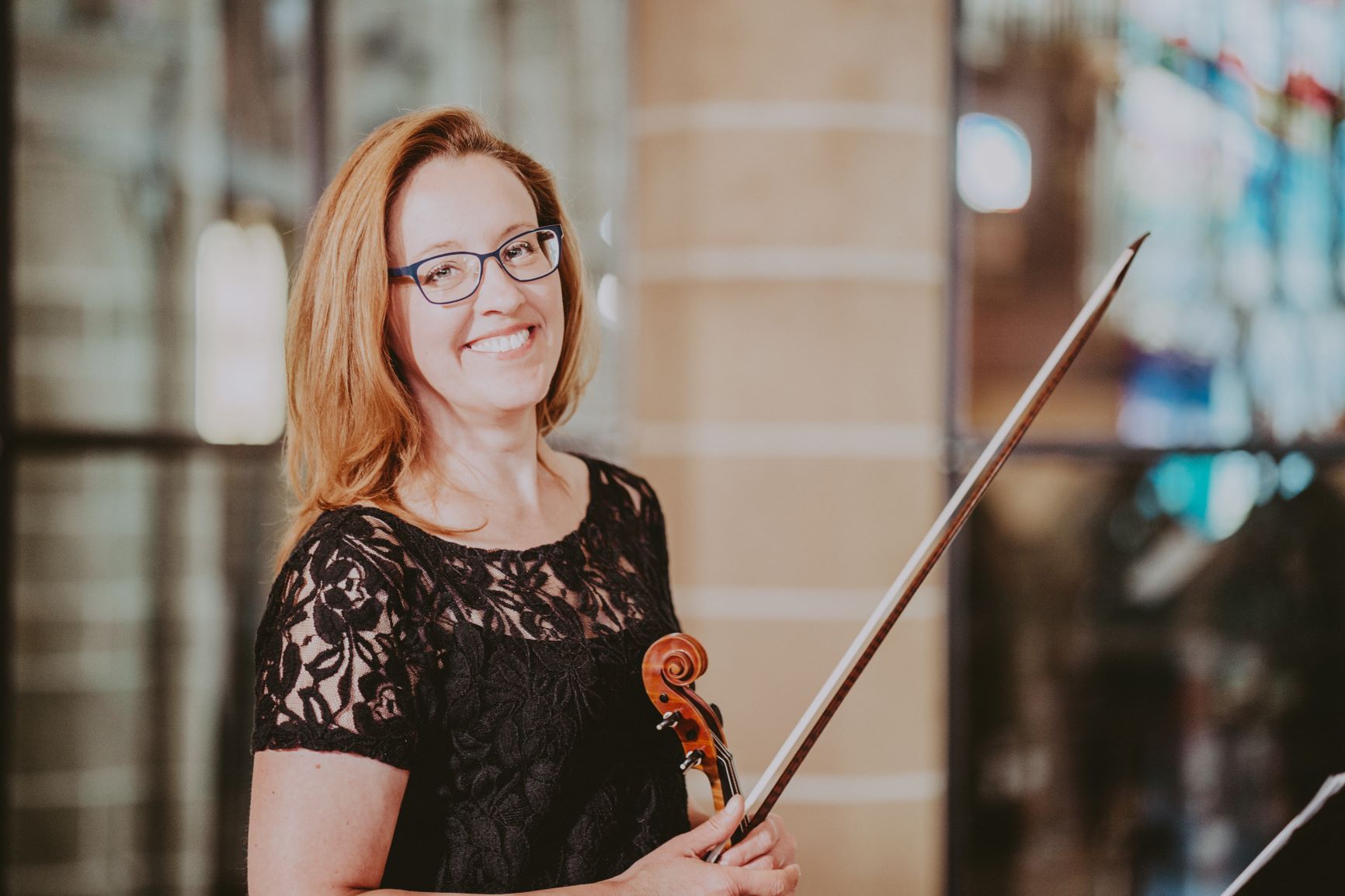
Christi Meyers, Solo Violin 2
Christi Meyers has had a prominent role in the musical life of Victoria, BC for almost 15 years. Assistant Concertmaster of the Victoria Symphony since 2001, she has also been active playing in musical organizations locally such as the Galiano Ensemble, Odyssey String Quartet and away, for the Vancouver Symphony, Sinfonia Rotterdam (NL) and the European Camerata (UK).
She has also nurtured her love of baroque violin playing as a member of the Victoria Baroque Players, performing also with Pacific Baroque Orchestra and on numerous projects with Early Music Vancouver. As an educator, she coaches the violins of the Greater Victoria Youth Orchestra, maintains a small private studio, and was on the music faculty at the University of Victoria from 2005-10. Christi has recorded chamber music for both CBC radio and television and can be heard on baroque recordings for ATMA (QB) and Marquis (ON). Born in Montreal and raised in Grande Prairie, Alberta, she holds degrees from McGill, Western, and the Vancouver Academy of Music, where she studied with Gwen Thompson and Sonia Jelikova.
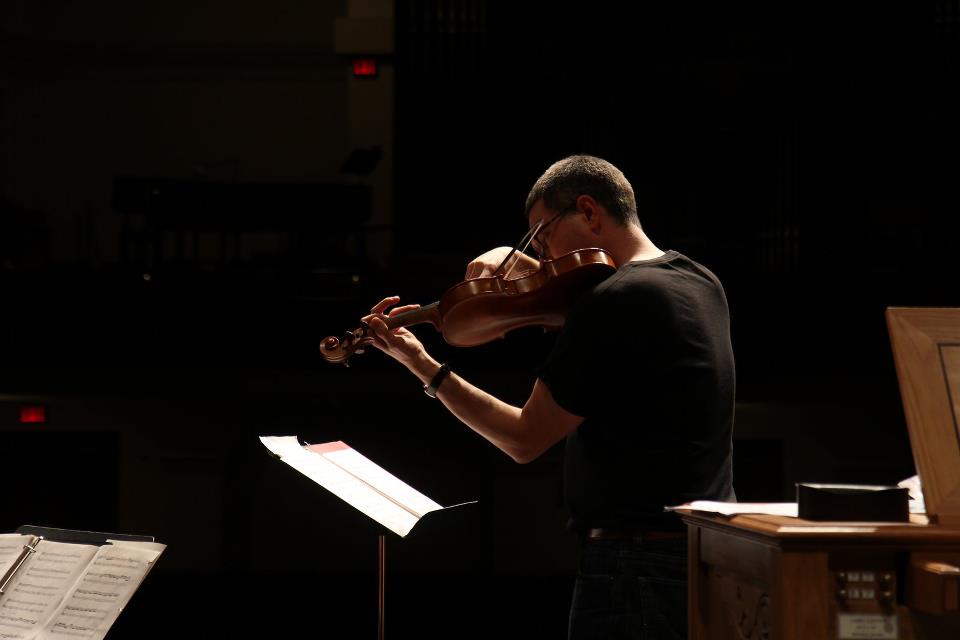
Paul Luchkow, Violin
Paul Luchkow is a versatile violinist and violist whose activities cover the range of music from the 17th Century to the present day on modern and period instruments. In addition to the Victoria Baroque Players, he is a regular feature of Vancouver’s Early Music scene. Paul is a long-time member of the Pacific Baroque Orchestra and appears frequently in concerts for Early Music Vancouver, the Early Music Society of the Islands, as well as at Victoria’s Pacific Baroque Festival.
In demand as a leader, guest director, and educator, Paul has worked with Per Sonatori: Regina’s Baroque period-instrument ensemble, VoiceScapes and Spiritus Chamber Choir in Calgary, and he has given performances and masterclasses at universities across western Canada. As an adjudicator, Paul frequently hears and encourages young musicians across British Columbia.
A highlight of recent years has been his work with fortepianist Michael Jarvis and their exploration of Baroque, Classical and Romantic sonata repertoire on period instruments. They have two recordings: One of Hummel Sonatas (nominated for a Western Canada Music Award) for fortepiano and violin / viola on the Marquis Classics label, and a self-released recording of sonatas by Mozart. A third recording, Sonatas by the French composer Michel Corrette, will be released on Marquis in Spring 2017.
Paul makes his home in Victoria with his wife and children.
Elyssa Lefurgey-Smith, Violin
Elyssa’s musical studies began at the age of five under Heilwig von Koenigsloew at the Nanaimo Conservatory of Music in British Columbia. After completing studies with violinists Lorand Fenyves in Toronto and Ian Swensen in California, Elyssa moved to Toronto in 2007 and worked for a decade as baroque violinist, chamber musician, teacher and coach before most recently moving to Vancouver Island, BC in 2016.
Elyssa is a founding member of the Elixir Baroque ensemble which has been actively performing in Toronto and abroad since 2007. The group has been a frequent guest on series at Toronto’s Metropolitan United Church, Musically Speaking Series and St. Barbaras United Church in addition to the group’s self presented wine and cheese concerts at the Bellwoods Academy of Music. Elixir was also invited as guest artists at the University of Fredonia and was named a finalist in the Early Music America baroque competition in 2014. In addition to her own projects with Elixir Elyssa has also been a member of the Aradia Baroque Ensemble since 2007 on both the orchestral and chamber music series, and has made several recordings with the group under the Naxos Label. She appears regularly with Tafelmusik Baroque Orchestra, Opera Atelier, Talisker players, Opera in Concert and the Hamilton Philharmonic. Elyssa has been invited to perform as a guest artist with the IFURIOSI Baroque Ensemble and the Windemere Quartet and has appeared as a soloist with the Corktown Chamber Orchestra, Georgetown Bach Chorale, Community Baroque Orchestra of Toronto and the Alicier Arts Concert series. Her international tours have included performances in Russia, Australia, France, Ireland and Italy.
Elyssa has recently relocated to Vancouver Island to be closer to family along with husband Michael and one year old daughter Isla Pepper. She is enjoying the island life but will be back in Toronto for several performances and teaching engagements in the 2016-17 season.
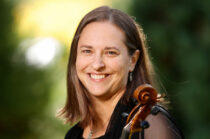
Mieka Michaux, Viola
Originally from Victoria, B.C. Mieka enjoys an active career as an orchestral and chamber musician performing on both modern and baroque viola and violin. She completed a Bachelor of Music degree in 1998 and, in 200, obtained a Master of Music at Rice University in Houston, Texas. She has studied and performed at the Music Academy of the West, the Banff Center for the Arts, Orford Center for the Arts and the National Youth Orchestra of Canada. Currently, Mieka is a member of the Victoria Symphony and since 2010 she regularly performs with the Pacific Baroque Orchestra. She is also a founding member of the Victoria Baroque Players.
In 2006, along with three colleagues from the Victoria Symphony, she co-founded the Emily Carr String Quartet. The quartet’s debut CD Hidden Treasure was nominated for Classical Recording of the Year by the Western Canadian Music Awards.
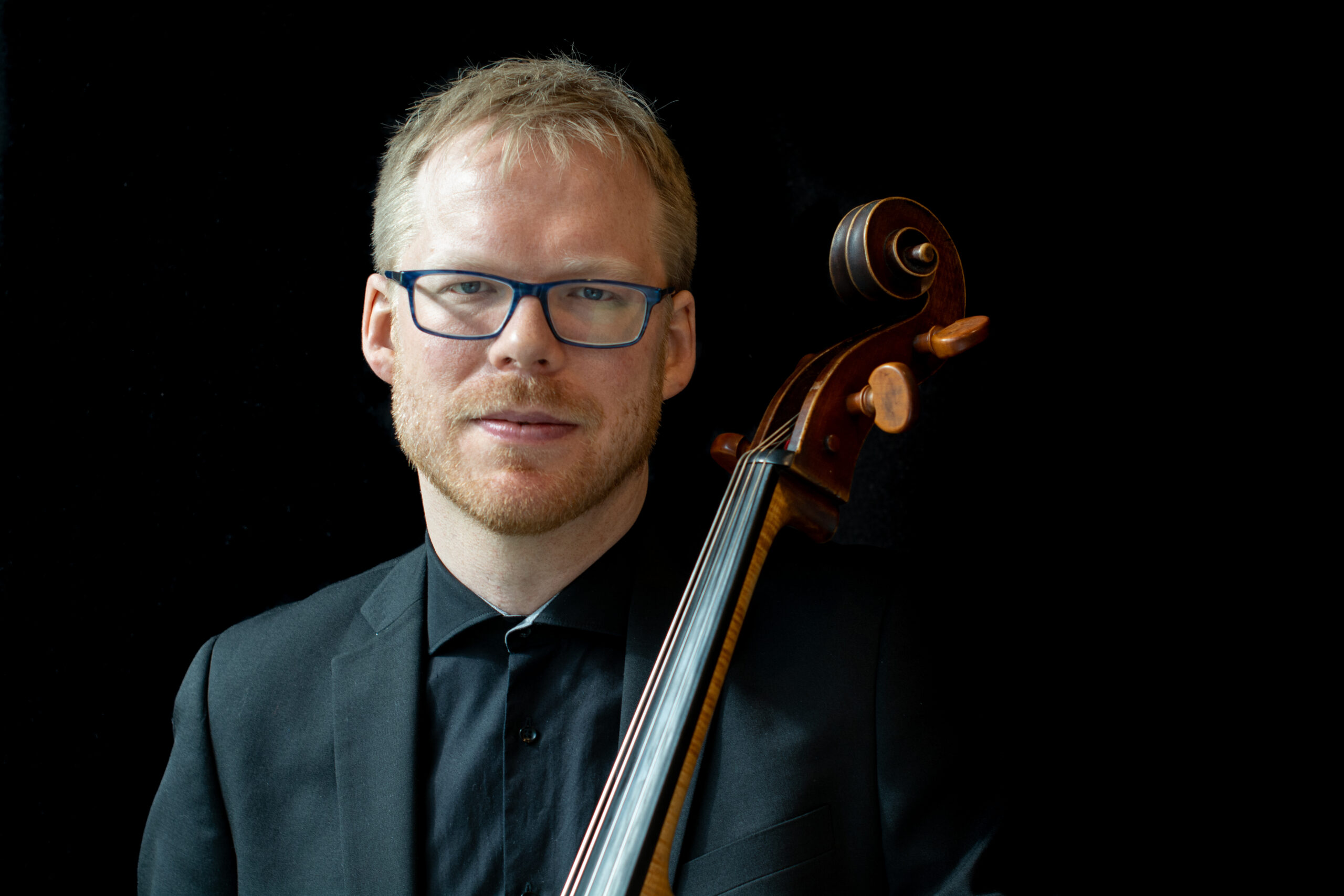
Diederik van Dijk, Cello
Diederik van Dijk is a Dutch-Canadian cellist with a broad range of musical activities and interests who is equally at home on the Baroque and the modern cello. Based in Utrecht, the Netherlands, he divides his time mostly between chamber music and orchestral playing. With a practice spanning four centuries of music history and crossing over into various genres, his musical life has taken him from the Amsterdam Concertgebouw to outdoor stages in Newfoundland; from performing internationally at major Early Music festivals to recording in Abbey Road Studios.
Diederik studied cello with Ian Hampton, Eric Wilson, and Marc Destrubé, and Baroque cello with Viola de Hoog, acquiring in the process a Bachelor of Arts from the University of British Columbia and a Bachelor of Historical Instruments from the Utrecht Conservatory. He is a core member of Combattimento, the Van Swieten Society, and inter-arts ensemble Dark by Five and is frequently engaged as principal cellist with the Nieuwe Philharmonie Utrecht. In recent years he has also performed with the Orchestra of the 18th Century, Amsterdam Baroque Orchestra, the Metropole Orkest, Insomnio, Holland Opera, and the Pacific Baroque Orchestra.
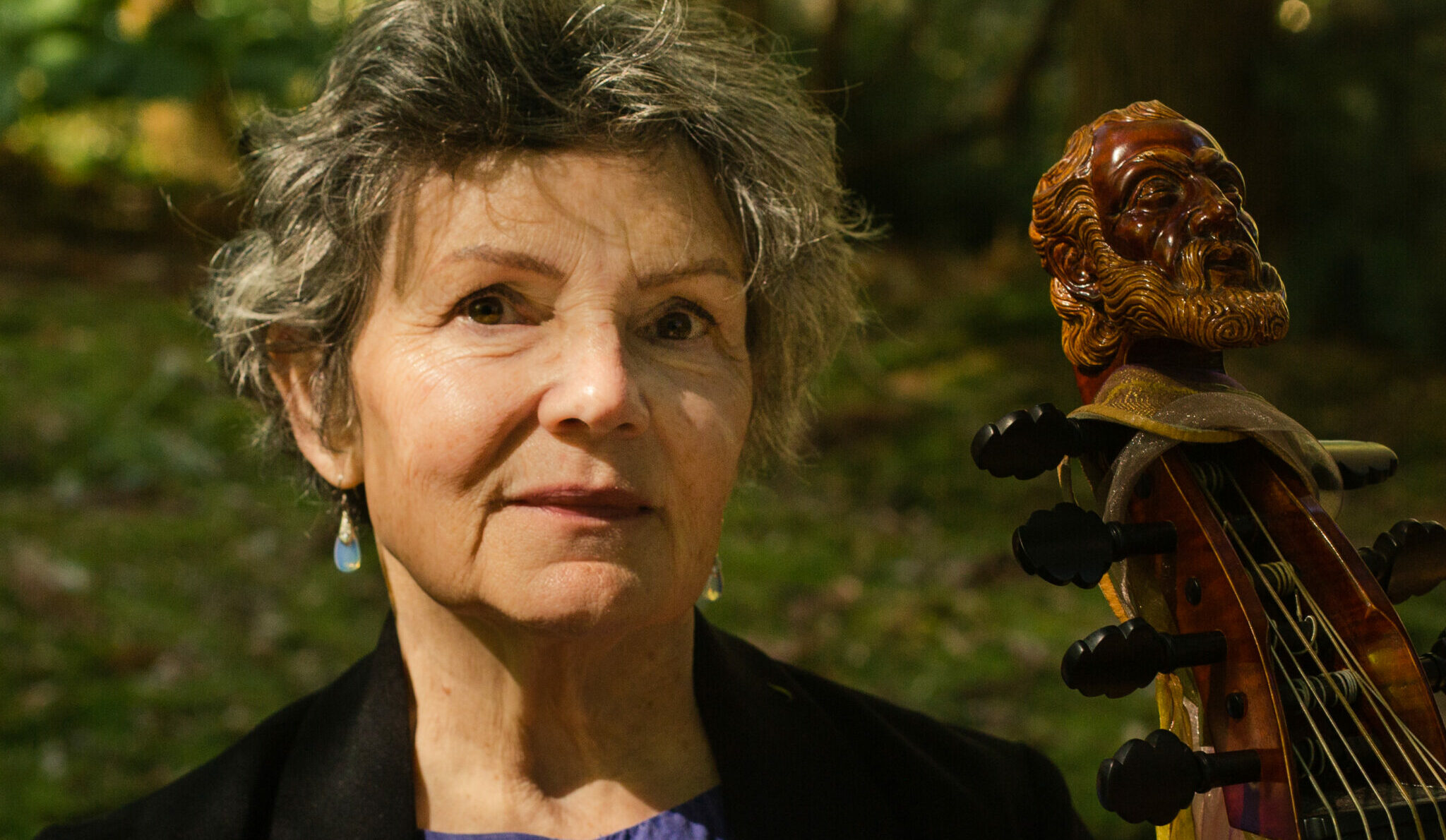
Natalie Mackie, Violone
Natalie Mackie studied cello at the Conservatoire de Musique (Québec), followed by a degree from the School of Music, University of British Columbia. While at UBC she was introduced to the viola da gamba, and following graduation, she pursued further studies at the Koninklijk Conservatorium in The Hague. Natalie has played with many ensembles in Canada and the US, including New World Consort, Les Coucous Bénévoles, Tafelmusik, Portland, and Seattle Baroque Orchestras, Les Voix Humaines, Tempo Rubato, Les Voix Baroque, Oregon Bach Festival Orchestra, Victoria Baroque, and Vancouver Intercultural Orchestra among others. Natalie is a member of Pacific Baroque Orchestra and the chamber ensemble “La Modestine”- both Vancouver-based ensembles. She has toured throughout Canada, Europe, and the US and recorded for Radio France, German Radio, BBC, CBC, and NPR, as well as the Canadian label Atma Classique. Natalie is a regular performer in the Pacific Baroque Festival, held annually in Victoria, BC, and teaches in the Baroque Orchestra Mentorship Program at the University of British Columbia.
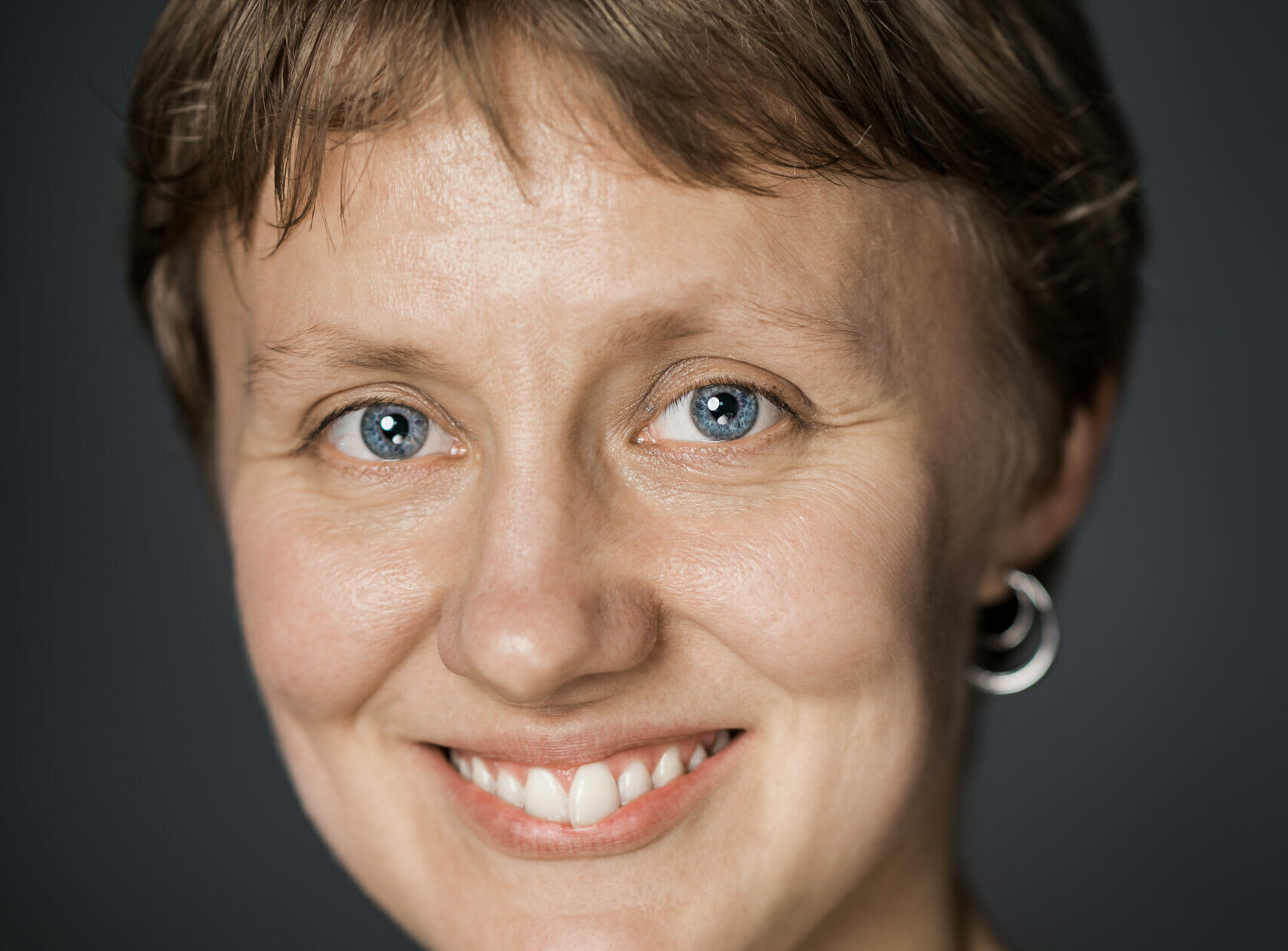
Soile Stratkauskas, Solo Flute
Finnish-born Soile Stratkauskas moved to Victoria, BC, in 2010 and has since established herself as the leading baroque flutist on the Canadian West Coast. She is a member of the Pacific Baroque Orchestra and regularly performs in Early Music Vancouver's concerts. Soile completed her undergraduate studies at the Royal Northern College of Music in Manchester, and gained her Master's degree at the Royal Academy of Music in London, UK, where she studied early flutes with Lisa Beznosiuk. Soile has performed with many prominent period instrument orchestras in the UK, including the Orchestra of the Age of Enlightenment and the Gabrieli Consort and Players, and has toured in Europe with these groups. Soile is the founder and artistic director of the Victoria Baroque, which, in addition to maintaining its own series, has given guest performances for Early Music Vancouver, Early Music Society of the Islands, ArtSpring, and the Cowichan Symphony Society. Soile teaches baroque flute at the University of British Columbia as part of Early Music Vancouver's Baroque Orchestra Mentorship Programme and is the artistic director of the Summer Baroque Intensive Programme at the Victoria Conservatory of Music supported by EMV and Victoria Baroque.


